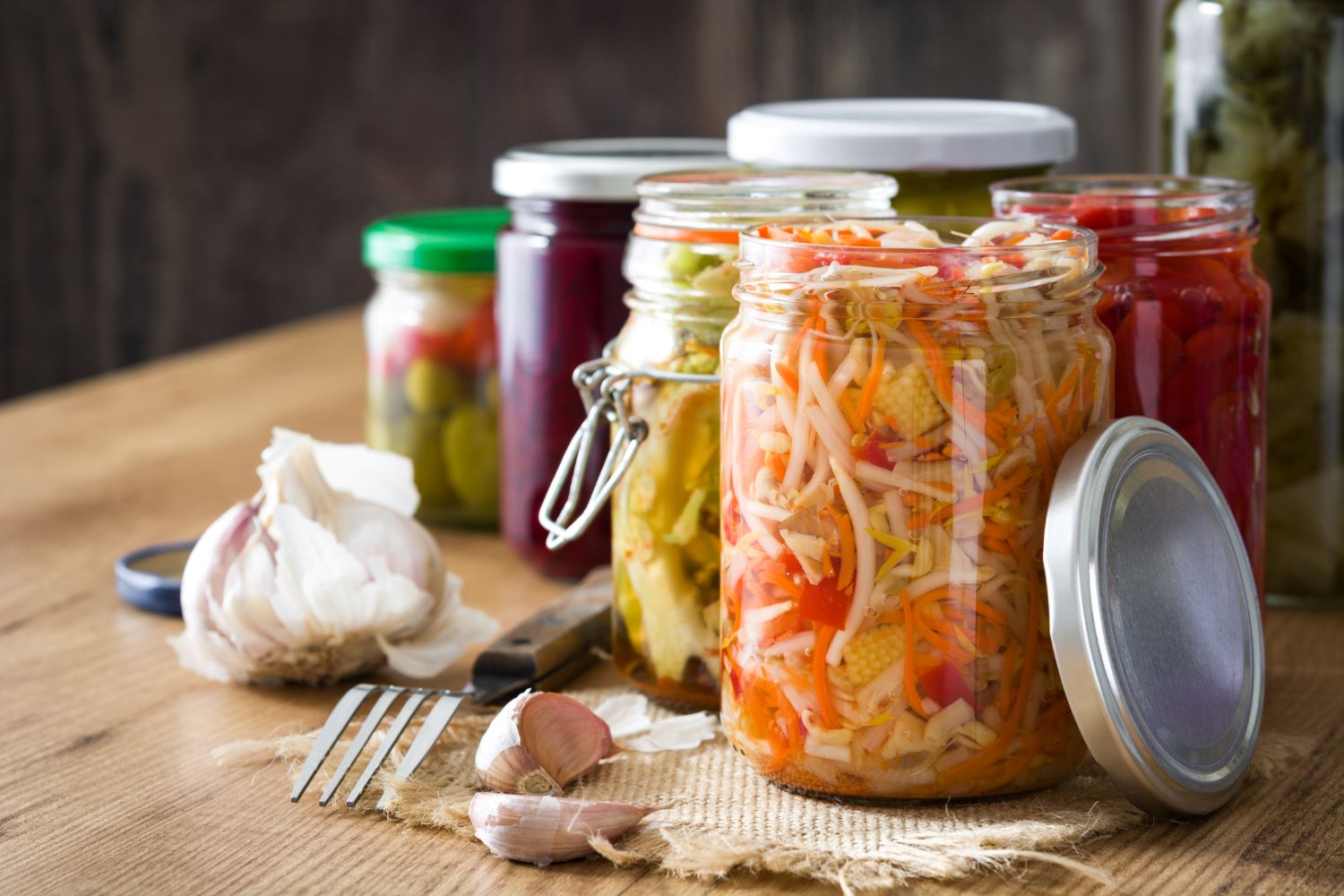Lucy Kerrison looks at the science behind the link between fermented foods and gut health.
With our increasing understanding of the importance of gut health comes increasing media coverage, gut health supplements and a boom of products such as fermented foods. What is the science behind these products, and should we be recommending these to our patients?
What are fermented foods?
Fermentation occurs when bacteria, yeast or other microorganisms convert carbohydrates or salt into alcohol or organic acids. Fermented foods are created under controlled conditions which allow for the growth of beneficial bacteria while inhibiting the growth of harmful pathogens.

The world of fermented foods is incredibly diverse, with each culture having its own specialties. For example:
Kefir
This is a fermented milk/yogurt product. Kefir grains are added to milk and left covered, at room temperature. This allows the bacteria and yeast in the kefir grains to break down the lactose in milk, producing your final product. The acidic environment prevents the growth of pathogenic microorganisms.
Sauerkraut
This finely shredded fermented cabbage originated in China. It is made by combining cabbage and salt, in an airtight container.
Kimchi
This is a spicy fermented vegetable dish, originating from Korea. It is typically made from napa cabbage, radishes and a blend of seasonings, often including garlic, chilli and ginger.
Kombucha
This effervescent and tangy beverage is produced by fermenting sweetened black or green tea with a symbiotic culture of bacteria and yeast (SCOBY).
Miso
This originated in China and is also popular in Japan. Miso is made by mixing soybeans, fermented rice and salt.
Fermented foods are always made with microorganisms, but not all fermented foods retain microorganisms. For example, there are live cultures present in the dough of sourdough bread, but they do not survive the cooking process.
The same is true for any fermented foods in sterile surroundings such as vinegar. There are a number of commercially available products which are pasteurised or undergo sterilisation, with live bacteria being re-added after this process. These products may then state they contain live bacteria or be labelled as kefir.
What’s the scientific evidence for promoting fermented foods to improve gut health and diversify the microbiome?
The evidence behind fermented foods is actually pretty limited. Much of the research is in its infancy, with studies showing associations between fermented foods and health benefits, rather than cause and effect through RCTs.
Kefir is the most well researched fermented food, and there are some small intervention studies to suggest that microorganisms within kefir can reach and populate the colon.
A study with around 50 patients with inflammatory bowel disease showed differences in microbiome of patients given 400ml of kefir per day for four weeks versus a control group (no treatment). There was also some qualitative data collection, with patients given kefir also reporting feeling better at week four. The study was small and not blinded; larger intervention trials are required.
The mechanism behind how fermented foods can positively influence the microbiome and general health is not fully understood. It is thought to be in part due to the live bacteria they contain, nutrients within their matrix or via fermentation-derived metabolites producing bioactive polypeptides and polyamines.
With this theory, it is potentially better to recommend fermented foods which we know contain live bacteria, such as kefir, kombucha, sauerkraut and kimchi.
Ease of digestion
Some fermented foods may be easier to tolerate for patients with IBS, due to a reduction in their FODMAP content (think fermented/pickled garlic and onions!). Kefir can also be helpful in those who have lactose intolerance, as it is not only lower in lactose than regular yogurt but also thought to promote the production of lactase, the enzyme required for the breakdown of lactose.
That being said, some patients with IBS do find fermented foods difficult to tolerate, so introducing these slowly and building up in the diet is advised to prevent bloating or other symptoms.
What’s the verdict?
Fermented foods provide us with a broader range of flavours, and early evidence shows they can support the microbiome. We are unclear yet if this is a transient effect, and more studies and RCTs are needed for us to provide in-depth guidance to patients.
Fermented foods can be used to help those with IBS improve their tolerance to certain sugars such as lactose and FODMAPs, although they should be introduced slowly and on a case-by-case basis.
References
- Kairey, L., Leech, B., El-Assaad, F., Bugarcic, A., Dawson, D. and Lauche, R. (2022). The effects of kefir consumption on human health: a systematic review of randomized controlled trials. Nutrition Reviews, 81(3), pp.267–286. doi: https://doi.org/10.1093/nutrit/nuac054.
- Yılmaz, İ., Dolar, M.E. and Ozpınar, H. (2019). Effect of administering kefir on the changes in fecal microbiota and symptoms of inflammatory bowel disease: A randomized controlled trial. The Turkish Journal of Gastroenterology, [online] 30(3), pp.242–253. doi: https://doi.org/10.5152/tjg.2018.18227.
- Leeuwendaal, N.K., Stanton, C., O’Toole, P.W. and Beresford, T.P. (2022). Fermented Foods, Health and the Gut Microbiome. Nutrients, [online] 14(7), p.1527. doi: https://doi.org/10.3390/nu14071527.
- Dimidi, E., Cox, S.R., Rossi, M. and Whelan, K. (2019). Fermented Foods: Definitions and Characteristics, Impact on the Gut Microbiota and Effects on Gastrointestinal Health and Disease. Nutrients, [online] 11(8), p.1806. doi: https://doi.org/10.3390/nu11081806.







